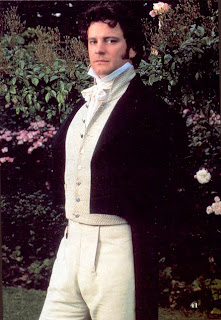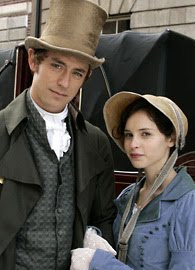I expect you’ve seen the story about the discovery of Claire Claremont’s less than fond reminiscences of Byron and Shelley (monsters of lying, meanness, cruelty and treachery) which has overshadowed another recent literary discovery regarding Georgette Heyer. Since we’re celebrating Georgette Heyer here with our Venetia readalong, what better place to discuss Miss Heyer, writer of a different sort of book. Apparently concerned that her Regencies and mysteries were not bringing in enough income, Miss Heyer turned her inventive pen to a less sophisticated sort of literature; the sort of badly bound book you could find on sale in sleazy bookstores in Soho in the 1950s.
Sadly, although she had the idea–non-stop action, frequent and vigorous pairings (or threesomes as the following excerpt demonstrates), Miss Heyer relied on the M-dash for words she was too much the gentlewoman to write out and her book was refused publication on the grounds that it might actually have to be copyedited, a rarity in this sort of fiction. Discouraged, Miss Heyer laid the manuscript aside.
But judge for yourself. Here’s an excerpt from that manuscript, tentatively titled These ——:
There was some slight commotion without; the next moment a footman flung open the library door, and the Duke came —.
—, —, and men went —. Léon had — —out of his chair, and had almost flung himself at Avon’s —, all etiquette and decorum forgotten.
“Monseigneur, Monseigneur!”
Over his —Avon met Davenant’s —.
“He is mad, of course. I beg you will calm yourself, my Léon.”
Léon gave his —a last kiss, and rose to his feet.
“Oh, Monseigneur, I have been —!”
“Now, I should never have suspected Mr Davenant of —to —,” remarked his Grace. “How are you, Hugh?” He strolled forward, and just touched Hugh’s outstretched —with his —. “Léon, signify your —at —me by —up the —.” He went to the —, and stood with his — to it, Hugh beside him.
“Have you had a pleasant —?” Hugh asked.
“A most instructive week. The —here are —. Allow me to point out to your notice, Léon, that an insignificant —lies under that —. It is never wise to disregard the —.”
Hugh looked at —.“What may that mean?” he inquired.
“It is merely advice, my dear. I should have made an excellent —. My —is almost equal to Chesterfield’s.”
Hugh chuckled.
“Chesterfield’s —is marvellous.”
“A little —. Yes, Léon, what now?”
“Shall I — —, Monseigneur?”
“Mr Davenant has certainly — you well. No, Léon, you shall not — —. I trust he has — no —, Hugh?”
Léon cast Davenant an — —. There had been one or two slight — of — between them. Hugh — — him.
“His — has been admirable!” He ejaculated.
Happy April Fool’s Day, everyone! Have you noticed any good online or real life celebrations today?















